Harold Bloom’s Tragic Confession
The provocative literary critic's recent book reveals that he yearns for more time to reconcile that he's merely "a reader and a teacher, and not a creator."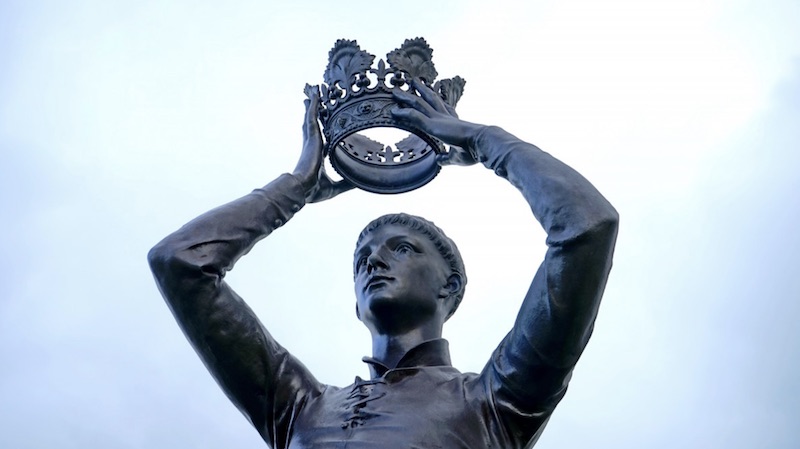 One of of Lord Ronald Gower's series of statues comprising The Shakespeare Memorial, on display in the literary legend's hometown of Stratford-upon-Avon in England, shows the ambitious Prince Hal from Henry IV, Parts I and II. (pxhere)
One of of Lord Ronald Gower's series of statues comprising The Shakespeare Memorial, on display in the literary legend's hometown of Stratford-upon-Avon in England, shows the ambitious Prince Hal from Henry IV, Parts I and II. (pxhere)
“Possessed by Memory: The Inward Light of Criticism”
A book by Harold Bloom
Writing about the provocative literary critic Harold Bloom is an intimidating affair. Everything about Bloom is daunting, particularly his noxious public persona. He will occasionally try to conceal it by condescendingly addressing his interviewer as “dear.” He rarely seems to notice whom he is speaking with, or what they are feeling. He can erupt into long passages of Shakespeare, Whitman or Yeats from memory—a circus act of stunning recall as he approaches 90. But unlike critics such as the late Lionel Trilling or Daniel Mendelsohn, for whom literary criticism is a tool to examine the crucial moral, social, and political questions of our time, Bloom insists that literature be studied purely for aesthetics.
In the 1960s, the New Criticism, which since has taken hold at most American universities, came into vogue, insisting that literature be reexamined through multiple lenses so that new interpretations and voices would flourish. Elaborate curriculums looked at literature through different prisms: gay, feminist, Marxist, deconstructionist and others. Bloom was enraged. He spent decades lambasting the New Criticism, refusing to have anything to do with these critics and labeling them derisively as “the school of resentment.” Many resented his elitism.
Bloom was born in 1930 to a poor Orthodox Jewish household in the East Bronx, one of five children. He lost faith early in the Jewish God when he accidentally stumbled on the poetry of Hart Crane. He fell in love with Crane’s enthusiasm for life, his belief in the possibility of ecstatic pleasure, and his overall exuberance. This was in stark contrast to Bloom’s childhood, which he confesses was a lonely time.
Although God was out of the picture, a spiritual hunger remained. For a time, when he was friends for a brief stint with an elderly Gershom Scholem, he was intrigued by mysticism, hopeful it might offer him something the Jewish God did not. He often said he was appalled by the very notion of Yahweh, whom he described as an “uncanny, dangerous, altogether outrageous God,” who seemed to take a perverse pleasure in appearing when he was least needed and disappearing when he was needed most.
In his newest book, “Possessed by Memory: The Inward Light of Criticism,” Bloom promised to shake off the polemical battles that have shadowed him for years. He pledged to include never-revealed autobiographical snippets. He wanted to share with his readers his recent reevaluations of some of his most beloved writers. He only partially delivers.
Click here to read long excerpts from “Possessed by Memory” at Google Books.
There are stunning passages from literature that have moved him for decades. There is poetry, prose, and criticism from John Milton, Dr. Samuel Johnson, William Collins, Thomas Gray, Blake, Wordsworth, Coleridge, Shelley, Keats, Tennyson, Browning, Swinburn, Elizabeth Bishop, John Ashbery and James Merrill. Bloom meditates on the Hebrew prophets, the Kabbalah, Psalms, Job, the Song of Songs, and Ecclesiastes. And of course, his beloved Shakespeare.
But Bloom’s insights don’t resonate deeply. He is too obsessed with comparing and contrasting, rather than allowing his responses to touch us deeply. He repeats his theory that poets always wrestle with the work of the poets that have come before them, either unconsciously or consciously, and then struggle to find their own voice in reaction to what has come before. There is something anti-transformative about his assertions, often tangled up with incomprehensible jargon.
Bloom still teaches at Yale and claims he has finally learned to better listen to his students. He tells them to select a piece of writing they love, sit under a tree and chant the lines to truly “possess” it. He does this himself at night when sleep fails him. The practice sparks repressed memories: “Vividly I saw myself, a boy of three, playing on the kitchen floor, alone with [my mother] as she prepared the Sabbath meal. She was born in a Jewish village, and I was happiest when we were alone together. As she passed me in her preparations I would reach out and touch her bare toes, and she would rumple my hair and murmur her affection for me.” But then Bloom stops. He moves away from memory as though it might devour him. Bloom has confessed that during a serious midlife crisis, he underwent Freudian therapy for a year and a half and found it to be a dismal failure. The analyst thought Bloom was using their sessions as a performance venue. Although Bloom writes sneeringly while recounting this, it is one of the more startling revelations we learn about him.
About Shakespeare, however, Bloom is nothing short of reverential: “My religion is the appreciation of high literature. Shakespeare is the summit. Revelation for me is Shakespearean or nothing.” He admits that much about the Bard still bewilders him. In a moment of rare vulnerability, Bloom admits he longs for more life. Bloom explains his theory of “self-otherseeing,” which allows one to glimpse parts of one’s self that are hidden from conscious view. “Self-otherseeing” also describes “the double-consciousness of observing our own actions and offerings as though they belong to others and not to ourselves.” Bloom insists that Shakespeare’s characterizations of Hamlet, Iago, Cleopatra and Falstaff use “self-othering,” and by watching them we inadvertently learn to think more seriously about ourselves. But he doesn’t show us how this has applied to him, only the declaration that it does so. We are left mystified and dubious.
Recently, chanting Walt Whitman to himself at night—he describes Whitman as “our repressed voice,” a loosener and liberator whose fearlessness embraces every living moment—Bloom brought forth an almost feverish recollection from over 70 years ago. There was a young lady of 17 with lustrous long red hair. They were students at Cornell and took long walks together, picking apples that she would transform into a delicious applejack. And then, as with his mother, Bloom stops. We learn nothing else about the girl, what transpired, or what this memory meant to him on this restless night. He has already moved on, to his infatuation with Proust’s “privileged moments” and “sudden ecstasies of revelation,” which bring back to Bloom his dead parents whom he misses dearly.
For the briefest of moments, a veil lifts, and he speaks about wanting more time, not wanting to die. He shyly admits that he needs more time to make peace with the difficult reality that he is merely “a reader and a teacher, and not a creator.” It is a tragic confession. How excruciating it must be to revel in creative genius yet not possess the gift to create.
Ultimately Bloom cannot change into anything other than who he has always been—masterful and monstrous. He seems to sense he has moved out of favor in many circles but chooses not to dwell upon why. Instead, he continues as he always has: writing and teaching his handpicked “elite” students at Yale—part of the unique arrangement he has made with the university. He has led a long, cloistered, and entitled life. The aloneness he described as a child seems to have shrouded his adult life as well. I wonder if he questions this aloneness in his darkest moments. I would guess that he does not dwell too deeply upon it, perhaps afraid of answers he doesn’t wish to confront.
I also wonder whether Bloom would relinquish his status as an intellectual of the highest order to feel for one day the exuberance and passion of Hart Crane. What would he be willing to let go of to actually feel intimately the joy and euphoria that so seduces him in his imagination?
Your support matters…Independent journalism is under threat and overshadowed by heavily funded mainstream media.
You can help level the playing field. Become a member.
Your tax-deductible contribution keeps us digging beneath the headlines to give you thought-provoking, investigative reporting and analysis that unearths what's really happening- without compromise.
Give today to support our courageous, independent journalists.
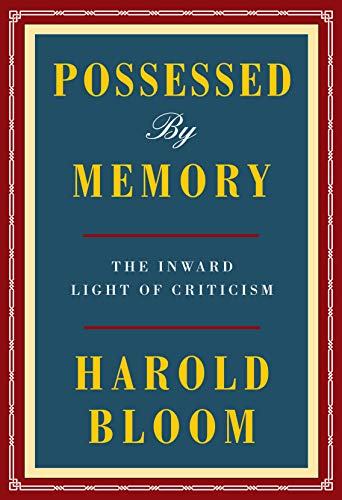
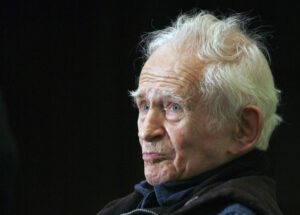
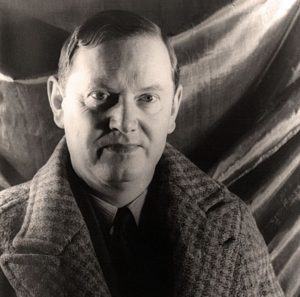
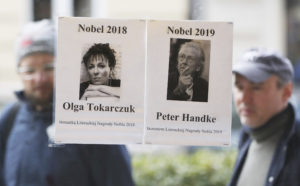
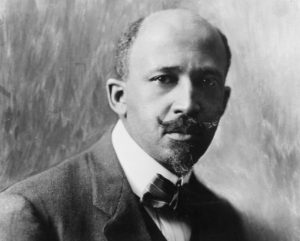


You need to be a supporter to comment.
There are currently no responses to this article.
Be the first to respond.